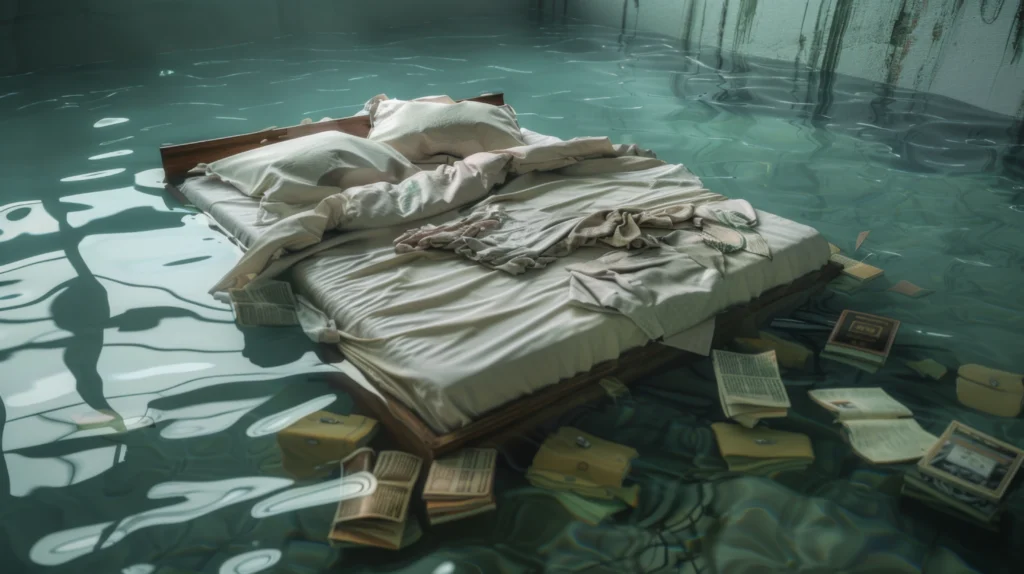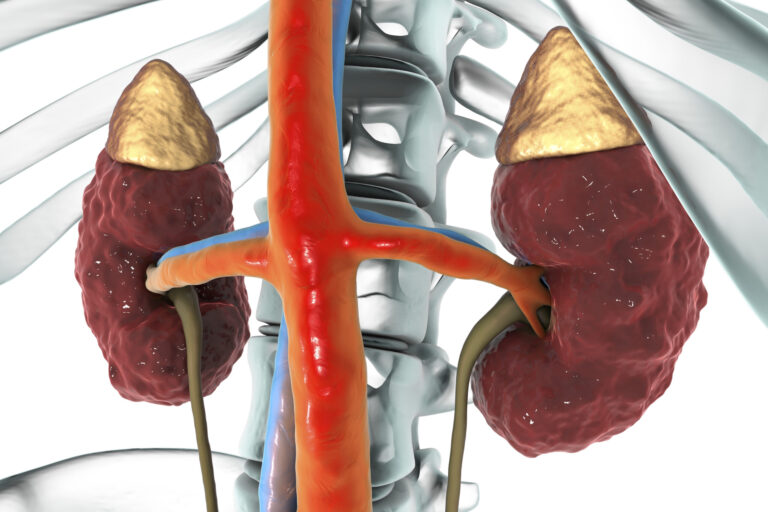Have you ever paused to wonder about those bean-shaped powerhouses tucked away in your lower back? They might not steal the spotlight, but your kidneys tirelessly work behind the scenes to keep you humming. Let’s explore their amazing world and why these incredible organs deserve extra appreciation!

Your Body’s Built-in Kidney Function Filtration System:
Imagine your blood as a busy highway carrying everything from nutrients to waste products. Your kidneys act like the ultimate filtration plant, constantly cleaning up the traffic. They expertly remove unwanted substances your body doesn’t need (like the leftovers from digested food) while keeping the perfect balance of water and essential minerals for a smooth ride.
But Wait, There’s More Kidney Functions!
Think of your kidneys as superheroes with multiple powers:
- Balancing Act: They maintain the ideal balance of salts and minerals in your blood (like sodium and potassium), crucial for healthy muscles and nerves.
- Red Blood Cell Production: Your kidneys release a special hormone called erythropoietin, which signals your body to make more oxygen-carrying red blood cells.
- Strong Bones: They help activate vitamin D, essential for keeping your bones strong.
- Blood Pressure Control: They play a key role in regulating your blood pressure.
Remembering it All: “A Wet Bed”!

So many amazing kidney functions can be a lot to remember! Here’s where the handy “a wet bed” mnemonic comes in. It’s a memory trick, just as a tiny seed holds the potential for growth, “a wet bed” represents the incredible work of your kidneys.
Let’s break down what each part of “a wet bed” stands for:
- A – Controlling Acid-base balance
- W – Controlling Water balance
- E – Maintaining Electrolyte balance
- T – Removing Toxins and waste products
- B – Controlling Blood pressure
- E – Producing the hormone Erythropoietin
- D – Activating vitamin D
Understanding Your Amazing Kidneys: The “A Wet Bed” Guide To Kidney Function
Your kidneys are two extraordinary organs working tirelessly to keep your body healthy, like a powerful cleaning crew on a 24/7 shift! Let’s remember their incredible kidney functions using a simple memory trick: “a wet bed” function of the kidney!
Section 1: A – Controlling Acid-Base Balance
- What is pH? Think of pH as a special scale for measuring your internal soup – is it a little too tangy (acidic), a little too bland (basic), or just right? Every part of your body, from your brain to your muscles, needs that soup to have the perfect pH to work correctly.
- The Kidney’s Balancing Act: Your kidneys are constantly monitoring your body’s soup recipe. If it starts tasting too sour (acidic), they have a secret ingredient called bicarbonate they release, like adding baking soda to fix an overly tart lemonade. If the soup gets bland (basic), they’ll filter out excess bicarbonate, ensuring it has just the right balance for all your organs to thrive.
Section 2: W – Controlling Water Balance
- Your Body’s Hydration Control: Your kidneys are like a personalized water monitoring system. Imagine all the water inside your body as a giant swimming pool. Your kidneys constantly measure the water level. If you drink a ton of water, the pool level goes up, and your kidneys signal that it’s time for a big splash – making lots of urine to get rid of the extra. But, if the pool level drops low (maybe you’ve been sweating or haven’t had enough to drink), they’ll go into conservation mode, making only a little urine until you refill.
Section 3: E – Maintaining Electrolyte Balance
- Electrolytes: The Tiny Powerhouses: Electrolytes are more than just the stuff in sports drinks! They’re special minerals like sodium, potassium, and calcium that carry tiny electrical charges. Imagine them as little lightning bolts powering every zap of a nerve signal, every pump of a muscle, and even the steady balance of fluids in your body.
- The Kidney’s Filtering System: Your kidneys work like a high-tech sorting machine for these electrolytes. They have built-in sensors that monitor the levels. Too much sodium? They’ll whisk some away in your urine to lower the charge. Notice your potassium is low? They’ll send it back into your bloodstream so your body stays powered up.
Section 4: T – Removing Toxins and Waste Products
- Your Body’s Built-In Detox: From the moment you wake up to the moment you sleep, your body’s working hard. Just like cleaning up after a busy day, this work produces leftovers: waste products from breaking down food and other processes. Imagine these waste products like stinky trash piling up in your house… not a good situation!
- The Kidney’s Cleanup Crew: Your kidneys are your personal sanitation team, working non-stop! They filter your blood, grabbing hold of those waste products and toxins like garbage bags. Then, they pack all that waste away into your urine, sending it out of the house so your body stays clean and healthy.
Section 5: B – Controlling Blood Pressure
- Blood Pressure: The Force Within: Blood pressure is the force that pushes blood through your entire network of blood vessels – think back to those pipes in your house. Too low pressure means not enough “water” is delivered to keep your organs happy. Too high, and those pipes might strain and leak!
- The Kidney’s Pressure Regulator: Your kidneys are more than filters; they’re experts in pressure control. They release a special substance called renin – like a secret ingredient in a recipe. Renin kickstarts a whole chain reaction, slightly squeezing your blood vessels like a gardener adjusts a water hose. This helps raise the pressure inside, keeping that blood flowing where it needs to go.
Section 6: E – Producing the Hormone Erythropoietin
- Red Blood Cells: Your Oxygen Carriers: Imagine millions of tiny trucks in your bloodstream, each loaded with oxygen, ready to deliver this precious cargo to every part of your body. These trucks are your red blood cells. When you don’t have enough, it’s like a delivery crisis – your muscles feel weak, your brain feels foggy, and you’re tired all the time.
- The Kidney’s Signal System: Your kidneys are like amazing dispatchers. They sense when oxygen deliveries are low. That’s when they send out a special call signal – the hormone EPO. EPO zips to your bone marrow, where red blood cells are made, and shouts: “Emergency delivery needed! Build more trucks!”
Section 7: D – Activating Vitamin D
- Sunshine Vitamin… Kind Of: You might think getting out in the sun is enough to get all the bone-strengthening vitamin D you need. The truth is, sunshine starts the process but leaves you with a half-finished product.
- The Kidney’s Activator: Think of your kidneys as the magic button that turns that half-finished form into the real deal – active vitamin D. This active form is like a key that tells your body to snatch up all the calcium from your food and build those strong, sturdy bones.
Protecting Your Kidneys
Now that you understand your kidneys’ incredible work (remember, “a wet bed”!) you can start taking steps to keep them healthy. A healthy lifestyle that includes a balanced diet, regular exercise, and managing health conditions like diabetes and high blood pressure can go a long way in protecting these vital organs.
Got More Questions About Your Amazing Kidneys? We’ve Got Answers!
Though they may work behind the scenes, understanding kidney function is key to your overall well-being. Here are some common questions patients ask at The Kidney Experts:
- Q: How do I know if my kidneys are healthy?
- A: Think of your kidneys like those quiet kids in class who always get A’s… they work hard without making a fuss! To catch any hidden problems, regular checkups with your doctor are key. Simple blood and urine tests act like report cards for your kidneys, giving us vital clues to their health.
- Q: Can I live with only one kidney?
- A: Yes! Most people are born with two kidneys, but our bodies are incredibly adaptable, and a single healthy kidney can do the necessary work.
- Q: What’s the difference between a nephrologist and a urologist?
- A: Both specialize in the urinary system, but have slightly different focuses. Nephrologists are like kidney specialists, focusing on the health of your kidneys and how they impact your overall body function. Urologists focus more on the physical structures of the urinary system (bladder, ureters, etc.).
- Q: My blood pressure is high. Does this automatically mean my kidneys are bad?
- A: Think of blood pressure like the water pressure in your house’s pipes. Sometimes pressure increases for reasons unrelated to the pipes themselves. However, your kidneys and blood pressure have a close relationship – they can both affect and be affected by each other. That’s why it’s important to get everything checked out.
- Q: I’m often tired. Could this be related to my kidneys?
- A: Absolutely! Remember, your kidneys are your body’s filtration system. If they aren’t working efficiently, waste products build up, making your body work harder (like running on dirty fuel). Additionally, your kidneys produce the signal for red blood cell creation (remember EPO in “a wet bed”?), so if they’re struggling, you might be short on these oxygen delivery trucks!
- Q: What does “blood sugar balance” have to do with my kidneys?
- A: Think of your kidneys as having little strainers that help keep the right amount of sugar in your blood. If they aren’t working properly, sugar levels can remain high, which over time can contribute to health problems.
- Q: Are kidney problems hereditary?
- A: Some forms of kidney disease do run in families. If you have a close relative who’s experienced kidney issues, discussing this with your doctor is important, so they can proactively monitor your health.
Want to take charge of your kidney health?
Contact The Kidney Experts today to schedule a consultation. We’ll help you understand your own personal “Big Red Seed” and create a plan to keep it growing strong!
Resources
- National Kidney Foundation – General Overview of Kidneys: https://www.kidney.org/kidneydisease/howkidneyswrk
- National Kidney Foundation – Kidney Basics Page: https://www.kidney.org/kidney-basics
- American Heart Association – Blood Pressure: https://www.heart.org/en/health-topics/high-blood-pressure


